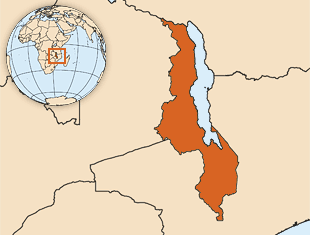  PROGRAMS & THEMES: Gender, IFIs and the Global Food Crisis
 Case Study:
Malawi
Download the case study (pdf, 680kb)
Women, over 70 percent of Malawi's agricultural workforce, are the backbone of Malawi's agriculture sector and central to Malawi's economy. But according to Gender Action research, IFI-financed agriculture projects in the country address gender issues inconsistently and risk undermining Malawi's food security.
Gender Action's new "Gender, IFIs and Food Insecurity Case Study: Malawi" examines the five World Bank (WB) and African Development Bank (AfDB) investments active in early 2013. We find that though most projects identify gender issues and some have percentage participation targets for women, they frequently lack sex-disaggregated evaluation data and rarely contain project measures that address gender inequalities. Our recommendations include promoting and implementing women's full and equal participation in project design and implementation, in line with the Malawi Growth and Development Strategy and National Gender Program, and designing and collecting sex-disaggregated data to measure projects' gender impacts. The success of these projects depends on IFIs addressing women's concerns and ensuring that they benefit from IFI agriculture investments.
|
